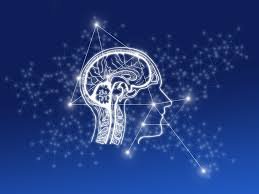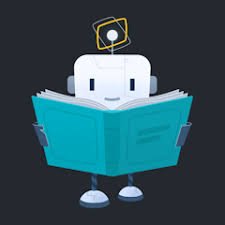“The Intersection of GPT, AI, and Cloud Computing: A Powerful Trio”
INTRODUCTION:
In the rapidly evolving landscape of artificial intelligence (AI), two terms that have gained significant attention are GPT Chat AI and Cloud AI. Both technologies are transforming how businesses interact with their customers and streamline their operations. While they share a common foundation in AI, their applications, functionalities, and technological underpinnings differ substantially. This article will delve into the nuances of GPT Chat AI and Cloud AI, examining their capabilities, use cases, and what sets them apart gpt chat ai and cloud ai.

Understanding GPT Chat AI:
GPT Chat AI refers to conversational agents powered by Generative Pre-trained Transformers (GPT), a cutting-edge model developed by DeepAI. The core function of GPT Chat AI is to engage users in natural language conversations, allowing for human-like interactions through text-based communication. This technology has paved the way for different applications, including chatbots for customer service, virtual assistants, content creation, and even educational tools.
Key Features of GPT Chat AI:
- Natural Language Understanding: GPT Chat AI can understand context, nuances, and variations in human language, making conversations feel fluid and engaging.
- Contextual Awareness: The model is designed to remember context within a conversation, allowing it to provide relevant responses rather than generic answers.
- Content Generation: Apart from conversing, GPT Chat AI can generate articles, summaries, and various types of written content, which is particularly beneficial for marketing and content creation.
- Adaptability: Chat GPT can be fine-tuned for specific industries or user needs, offering tailored responses that cater to particular use cases.
Understanding Cloud AI:
Cloud AI refers to artificial intelligence capabilities that are provided on cloud computing platforms, enabling businesses and developers to access AI services without the need for extensive hardware investments. Cloud AI encompasses various AI technologies, including machine learning, natural language processing, and computer vision, all delivered as a service through cloud-based platforms like Google Cloud AI, Azure AI, and Amazon Web Services AI.
Key Features of Cloud AI:
- Scalability: Cloud AI can easily scale according to demand, allowing businesses to adapt their AI resources without upfront investment in physical infrastructure.
- Accessibility: By leveraging cloud computing, organizations can access powerful AI tools from anywhere, facilitating experimentation and development.
- Wide Range of Services: Cloud AI platforms offer various services, such as AI-driven analytics, image recognition, and language translation, catering to diverse business needs.
- Integration: Cloud AI services can seamlessly integrate with existing applications and systems, providing additional functionalities and enhancing user experience.
The Interplay Between GPT Chat AI and Cloud AI:
While GPT Chat AI and Cloud AI are distinct concepts, they can work synergistically to enhance digital communication and user engagement. For instance, a business may deploy GPT Chat AI through a Cloud AI platform, effectively making it accessible and scalable. This combination allows for advanced conversational interfaces that can handle millions of queries, personalize interactions based on user data, and learn over time through continuous usage.
Applications of GPT Chat AI:
- Customer Support: Many companies utilize GPT Chat AI to provide 24/7 customer support, answering frequently asked questions, troubleshooting, and guiding users with personalized assistance. This increases efficiency while reducing operational costs.
- Content Creation: Marketers leverage GPT Chat AI for generating blog posts, social media updates, product descriptions, and more, thereby streamlining the content creation process.
- Education: GPT Chat AI is being used in educational technology to offer tutoring, assist with homework, and provide explanations on various subjects, making learning more interactive.

a-wp-editing=”1″ /> gpt chat ai and cloud ai
Applications of Cloud AI:
- Predictive Analytics: Organizations use Cloud AI to analyze data and predict consumer behavior, enabling them to make informed decisions.
- Image and Video Analysis: Businesses deploy Cloud AI for tasks like facial recognition, object detection, and video summaries, enhancing security and marketing efforts.
- Machine Learning Models: Developers can train, test, and deploy machine learning models on cloud platforms, enabling rapid development and iteration of AI solutions.
What is the Difference Between Cloud AI and ChatGPT?
Q: What is the difference between Cloud AI and ChatGPT?
A: Cloud AI refers to a suite of AI technologies and services hosted on cloud platforms, providing broader functionalities like machine learning, analytics, and image processing. ChatGPT, on the other hand, is a specific application of focused on generating human-like text responses in conversational formats. While ChatGPT can be hosted on cloud platforms, it represents just one of the many potential applications available within the wider spectrum of chat ai and cloud ai.
Challenges and Considerations:
- Data Privacy: With both GPT Chat AI and Cloud AI relying heavily on data, concerns about user privacy and data security become paramount. Businesses must implement robust security protocols to protect sensitive information.
- Dependence on Internet Connectivity: Cloud AI services require stable internet connectivity for optimal performance. Businesses need to consider this aspect, especially in regions with limited internet infrastructure.
- Contextual Limitations: While GPT Chat AI can remember context during conversations, it might struggle with extremely complex queries or highly technical subjects unless properly fine-tuned and trained with adequate data.
Q: How does GPT Chat AI enhance customer support?
A: GPT Chat AI provides immediate responses to user inquiries, offers personalized support based on user data, and operates 24/7, significantly improving customer service efficiency and satisfaction.
A: Yes, Cloud AI provides platforms and tools that enable the training and deployment of machine learning models, facilitating rapid development and experimentation.

Q: What are some examples of Cloud AI services?
A: Examples of Cloud AI services include Google Cloud AI for machine learning, Amazon SageMaker for developing and deploying models, and Azure Cognitive Services for implementing AI features in applications.
Conclusion:
In an era where artificial intelligence continues to reshape industries, understanding the intricacies of technologies like GPT Chat AI and Cloud AI is crucial for businesses looking to leverage these tools for competitive advantage. While GPT Chat AI excels in providing conversational and generative capabilities, Cloud AI offers robustness, scalability, and a wide array of AI services. By strategically combining these technologies,gpt cha</a></strong>t ai and cloud ai organizations can create powerful solutions that enhance user engagement, streamline operations, and ultimately drive success in their respective domains. As AI continues to advance, embracing these innovations will be key to staying ahead in the digital landscape.

